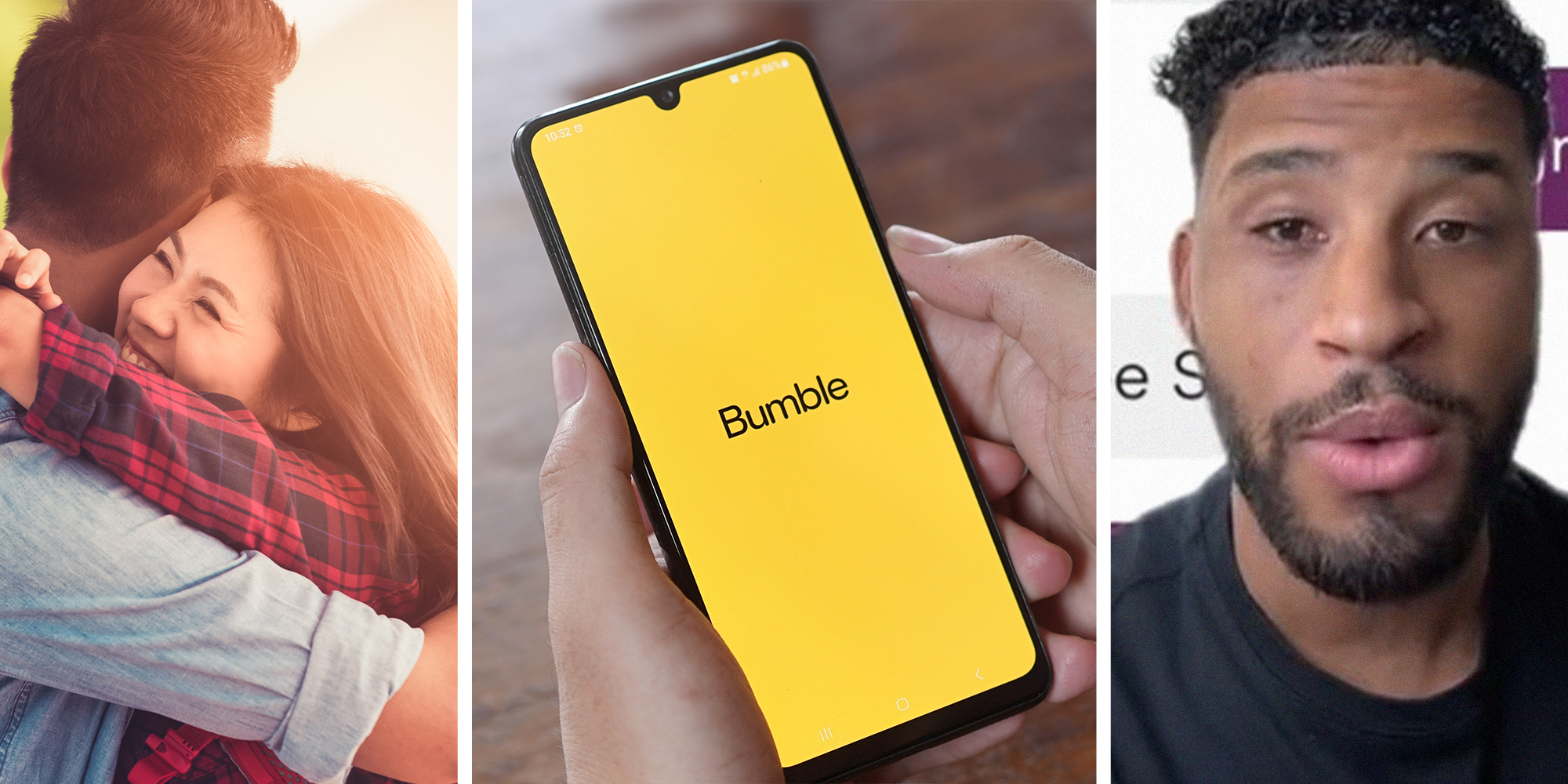How To Stop The Fear Of Abandonment From Ruining Your Dating Life

Your heart races every time they take too long to respond. You find yourself analyzing every slight change in their tone, every shift in their texting pattern, every canceled plan. That pit in your stomach grows deeper with each passing hour of silence.
I want you to know something important: You’re not being “too sensitive” or “too needy.” Your feelings are valid, and there’s a reason your heart guards itself so carefully. Let’s talk about what’s really happening when those abandonment fears surface in dating. Perhaps you’ve felt that familiar ache when:
- They say they’ll call but don’t
- They seem slightly distant during a date
- They need “space” or “time to think“
- Their texting pattern suddenly changes
- They’re less affectionate than usual
In these moments, your whole body might feel like it’s preparing for inevitable heartbreak. Your thoughts spiral, and everything inside you screams to either chase harder or run away first. If you’ve ever felt this way, know that you’re not alone. Let’s explore powerful ways to overcome the fear of abandonment, understanding not just what to do but how to navigate the reactive emotions so that you can approach dating in a more conscious way.
Do Your Shadow Work
Shadow work is essential because abandonment isn’t just about fear of being left – it’s about the parts of yourself you had to abandon to survive. Maybe you abandoned your voice because speaking up meant rejection. Perhaps you abandoned your boundaries because having needs meant people would leave. You might have abandoned your authenticity because being yourself felt too risky. True healing requires reclaiming these abandoned parts of yourself, and that can only happen when you’re willing to meet them in the shadows.
Think of your psyche like a house – your conscious mind is the well-lit living room where you entertain guests, but your abandonment wounds live in the basement, where you’ve stored away all the painful memories, the rejected parts of yourself, the anger you weren’t allowed to feel, the needs you learned to silence. Shadow work is about finally walking down those basement stairs, turning on the light, and sorting through what you’ve hidden away. It’s understanding that what you’ve banished to the shadows isn’t ugly – it’s simply waiting to be acknowledged, integrated, and healed.
Until you do this deep inner work, you’ll continue to recreate your abandonment story, not because you want to suffer, but because your unconscious mind is trying to heal by recreating the original wound, hoping for a different outcome. This is why you might find yourself drawn to unavailable people, or why you sabotage relationships when they get too close – these patterns live in your shadow, running on autopilot until you bring them into the light of consciousness.
Turn your awareness to your relationship patterns. Create a relationship timeline, noting not just romantic connections but friendships and family dynamics too. Look for recurring themes: Do you tend to choose unavailable partners? Do you abandon yourself to keep others close? Do you sabotage connections when they start feeling too intimate?
Each pattern is a teacher, showing you where healing is needed. When you notice yourself slipping into old patterns, pause and ask: “What would choosing myself look like in this moment? What am I afraid would happen if I honored my own needs?” Remember, the goal isn’t to eliminate fear but to build a stronger relationship with yourself so that fear no longer drives your decisions.
Practice Emotional Honesty
I know the thought of expressing your fears might make you want to cringe– that vulnerable moment when the words feel stuck in your throat, when you worry that speaking your truth might push them away. Believe me, hiding your feelings behind a brave face only leaves you alone with your anxieties, creating stories in your mind that grow bigger in silence.
Vulnerability isn’t just about sharing your wounds; it’s about showing up as your whole, imperfect self. It’s in those moments when you’re willing to say “I don’t know,” when you can laugh at your own mistakes, when you can admit your fears without trying to make them smaller. These moments of authentic self-expression create bridges of understanding between hearts. They say to others, “I trust you with my truth,” and in that trust, real connection begins to grow.
There’s such beautiful strength in gently saying, “My heart is feeling a bit shaky right now, and I want to share that with you.” When you notice that familiar knot in your stomach about unanswered messages or changed plans, try taking a deep breath and owning your experience: “I notice I’m feeling anxious about our connection, and I’d like to understand why.”
Your feelings deserve to be spoken, not as accusations or demands, but as honest windows into your heart. The right person won’t run from your truth – they’ll appreciate your courage to share it. Remember, expressing your fears isn’t about controlling their response; it’s about honoring your experience and creating space for real intimacy to grow.
Yes, there is a chance for rejection when you’re vulnerable. It may be painful to face the difficult conversation, but at least you spoke your truths, got your answer, and now you can move on. On the other hand, your vulnerability may bring you even closer and can bridge the gap between your inner world and theirs, creating a pathway to deeper understanding and connection.
Honoring Your Needs isn’t Needy
Having needs doesn’t make you needy. We all have needs and your desire for connection, for understanding, for reassurance – these aren’t character flaws. When anxiety wraps itself around your heart, I know that urge to bend yourself into impossible shapes just to keep someone’s attention.
When you feel that familiar pull to abandon your own needs, to say yes when you mean no, to exhaust yourself trying to be “perfect” – pause. Take a deep breath. Place your hand on your heart. You’re about to pour yourself out again, but first, let’s fill you back up with gentle truth.
When You Feel The Need to Please, Try These Instead:
Instead of: “I need to be whatever they want or they’ll leave”
Say to yourself: “I honor who I am, exactly as I am. The right person will appreciate my authentic self, not a version I’m pretending to be.”
Instead of: “If I just try harder, maybe they’ll stay”
Remind yourself: “I am worthy of someone who chooses me as I am, without having to perform or prove my worth.”
When you’re feeling emotionally flooded, speak to yourself as you would a beloved friend:
“It’s okay to feel overwhelmed right now. Your feelings make sense.”
“You’re doing the best you can with what you know right now.”
“This discomfort is temporary, but your worth is permanent.”
If you have found yourself struggling with honoring your own needs, check out this video where I go into depth on how to be vulnerable without feeling needy. [Article Continued Below]
Self-Compassionate Actions to Replace People-Pleasing:
Instead of constantly checking your phone: “I choose to focus on my peace right now. What would feel nurturing?”
- Take a warm shower and imagine the water washing away anxiety
- Write in your journal: “Right now, I’m feeling… and that’s okay“
- Put on music that makes your soul feel seen
When you want to drop everything for them: “I matter too. What do I need in this moment?”
- Ask yourself: “Would I advise my best friend to do this?”
- Take 10 deep breaths before responding
- Write down your non-negotiable needs and honor them
When you’re feeling desperate for approval: “I approve of myself, and that’s enough right now.”
- List three things you genuinely like about yourself
- Recall a time you were proud of setting a boundary
- Send love to the part of you that feels afraid
Your fear of abandonment didn’t appear out of nowhere. It grew from real experiences that taught you love isn’t safe. But here’s the beautiful truth: You can learn to love and trust again, at your own pace, in your own way.
The most important thing to realize during this time is that you can “be the chooser.” That means choosing yourself every day. If someone doesn’t treat you how you deserve, you take that as a sign that this person is not a good fit for you and walk away. Sometimes, the most powerful choice is to say NO to what you don’t want and make room for what you DO want!
Take it one day at a time, one interaction at a time, one breath at a time. You don’t have to walk this path alone. I’m here for you; schedule a Free Relationship Readiness Review here, and let’s talk. Every person who has ever loved deeply has felt fear. The key isn’t to eliminate the fear but to learn to hold it gently while still moving forward. You’ve got this, and your heart is stronger than you know.
The post How to Stop the Fear of Abandonment from Ruining Your Dating Life appeared first on Amie Leadingham - Amie the Dating Coach | Master Certified Relationship Coach | Online Dating Expert | Author .


